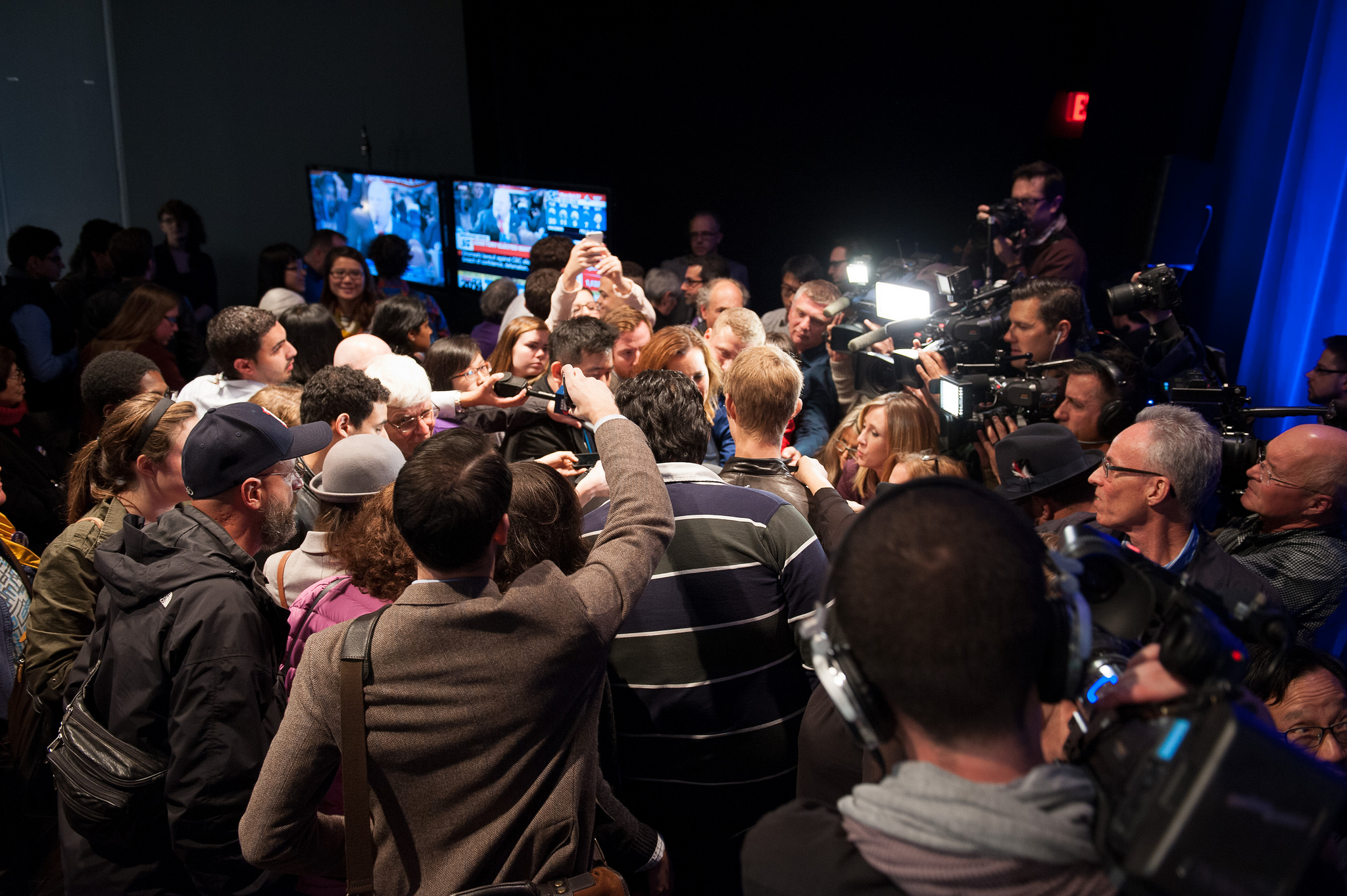This article is part two of “Media literacy in a post-fact age.”
Fans of democracy argue that, as a society, we need the whole news media ecology, including funding for major investigations as well as independent journalism sites like rabble.ca. One major difference between Canada and the U.S. is that Canada’s CRTC rejected core-cable status for Sun News Network, a kissing cousin to far right-wing Fox News in the U.S. Canadians have shown that much media savvy already.
In the U.S., a mere six companies control all the news media, outside of PBS — as Gemini Fox points out. She lists some independent outlets she finds reliable, such as Amy Goodman’s Democracy Now! and Glenn Greenwald’s The Intercept. On YouTube, I like The Young Turks — youthful, insightful, insouciant, and literally Turks of Turkish descent. Bill Moyers also listed his top 10 investigative sites on his blog.
Among mainstream media, Reuters News Service stands out for editor-in-chief Steve Adler’s instruction to newsroom staff to cover the White House the way they cover governments such as, “Turkey, the Philippines, Egypt, Iraq, Yemen, Thailand, China, Zimbabwe, and Russia, nations in which we sometimes encounter some combination of censorship, legal prosecution, visa denials, and even physical threats to our journalists.”
For what it’s worth, in my opinion most Americans would be amazed at the even-handed and thorough approach CBC takes to news gathering. Business Insider found that Americans place most trust in British news sources, but rely on the likes of Fox and CNN for domestic news.
Pew Research Center approaches the question another way, asking instead which news outlets are the more trusted. The Center found differences between liberals (who trusted 28 out of 36 news outlets) and conservatives, who trusted only 12 out of the 36 news organizations named.
Like anything else we see, what we observe depends largely on where we’re standing. Social media tend to reinforce our own attitudes, in that we see more of what we indicate we like. We need to treat our media diet like our food diet, aiming for variety as well as flavour and sustenance. We need to teach our children how to assess what they see onscreen, looking at source, content and context. As individuals, we need to follow a few trusted news sources like rabble.ca and CBC.ca, and keep a list of wildly inaccurate or politically unpalatable ones, like breitbart.com. And we can’t take high quality news gathering for granted.
News used to be the most important programming that local or national broadcasters could offer. These days, newspapers are thinner than thin mints. TV network websites promote entertainment or reality shows, and conceal news programming under the “more” button. In 2013, Jan Wong reported that Canada’s newsrooms had shed 10,000 jobs in the previous five years.
Last December, Canada’s Public Policy Forum des politiques publique du Canada issued a report that warns Canada’s news media cannot survive their steeply dropping revenue. The report found that 225 weekly and 27 daily newspapers have merged or closed shop since 2010, in more than 210 federal ridings. Small market TV stations have closed. Newsrooms everywhere whittle away at staff and services. The Public Policy Forum cites an estimated 30 per cent reduction in journalism jobs since 2010.
In response, Public Policy Forum President Ed Greenspon convened a panel of experts including pollster Allan Gregg to recommend ways to save the industry. “The Shattered Mirror” calls on the federal government to support Canadian news media in a dozen ways such as adjusting tax breaks for online advertising; allowing non-profit media to register as charities and thus be eligible for philanthropic funding; strengthening the Copyright Act; strengthening and expanding Canadian Press; establishing Indigenous journalism as a discipline; creating a legal advice service for investigative journalists, and establishing a Future of Journalism and Democracy Fund, with an immediate endowment of $100 million and annual deposits of taxes from Canadian advertisements placed in foreign online media.
There’s a reason the 45th U.S. president is furiously trying to control the news media, to the extent that Washington D.C. police have laid felony charges against six journalists who covered Inauguration Day protests. And it’s the flip side of the reason that the U.S. and Canadian constitutions protect freedom of speech.
As former Globe and Mail editor-in-chief Edward Greenspon put it: “Canada’s news media is in the midst of an existential crisis. So, therefore, is our democracy.”
Image: Flickr/Olivia Chow
Like this article? Please chip in to keep stories like these coming.




